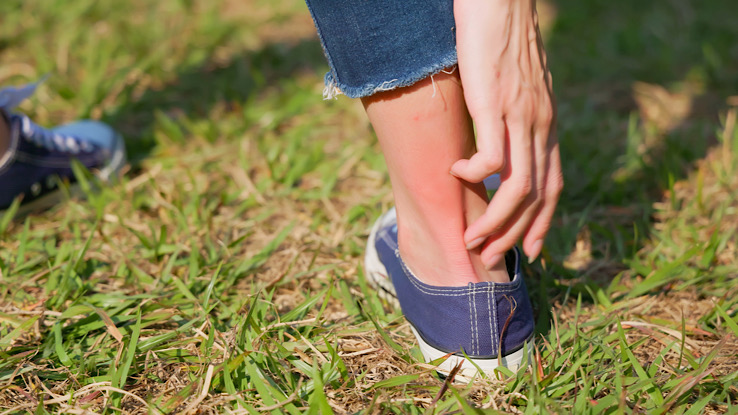
Fire ants are vicious when their nests are disturbed. As a result, it is not uncommon to experience multiple stings from several ants if you accidentally come across their home. These bites are pretty painful and often incredibly itchy. Still, in most cases, fire ant stings are safely treatable at home. Read on to find several helpful tips to relieve the sting of fire ants.
Ice and Elevation
Clean the affected area with mild soap and water as soon as possible to relieve burning and minimize the risk of infection. Use an ice pack to reduce pain and discomfort. Wrap the ice in a thin cloth and apply directly to the wound for about 15 minutes. Repeat the application every 15 minutes as needed. A cold compress used in the same way is also effective. Keep the ant bites elevated to reduce swelling.
Over-the-Counter Medications
Antihistamines and a hydrocortisone cream effectively relieve the pain and itching. Use a topical low-dose hydrocortisone cream to reduce inflammation. Depending on the severity of the stings, you may want to cover the area with a bandage to help the skin absorb the cream. Take these medications as needed, according to package directions, to manage pain, swelling, and itching.
Vinegar and Baking Soda
A combination of essential household ingredients can also effectively relieve your symptoms. For example, vinegar is a neutralizing cleansing agent, and baking soda soothes irritated skin, reducing itchiness and inflammation. Use vinegar and baking soda independently, or apply a paste with both ingredients to the wound. These ingredients provide a natural alternative to over-the-counter medications.
Expected Recovery Time
The burning, itchy sensation that occurs immediately after a fire ant sting usually subsides within an hour, but mild itching may continue for several hours. A firm, white bump forms over the bite site within the first 24 hours, and some pain and tenderness are possible. The marks typically take about a week to disappear completely. Excessive scratching increases the risk of infection, which may prolong recovery.
When To See a Doctor for Sting of Fire Ants
In a small number of cases, some people have a severe allergic reaction to fire ant bites and require immediate emergency treatment. If you experience breathing difficulties, swelling in the tongue or throat, vomiting, diarrhea, or dizziness, call 911 immediately. Hives, stomach cramps, and tightness in the chest are other symptoms that require timely medical attention.
Localized allergic reactions are generally milder and occur more often. These adverse reactions typically result in severe swelling of the area surrounding the bite sites. For instance, a person’s arm may swell due to ant bites on his hand. Mild allergic reactions such as these do not always require a doctor. However, contact your doctor if pain and itching persist after home treatment or if your symptoms worsen.
Resource Links:
- “Fire Ant Bites” via StatPearls
- “Medical consequences of multiple fire ant stings occurring indoors” via Journal of Allergy and Clinical Immunology
- “The allergic response mediated by fire ant venom proteins” via Scientific Reports
- “Imported fire ant stings: clinical manifestations and treatment” via Pediatric Dermatology
- “Fire ant venom hypersensitivity. I. Comparison of fire ant venom and whole body extract in the diagnosis of fire ant allergy” via Journal of Allergy and Clinical Immunology





